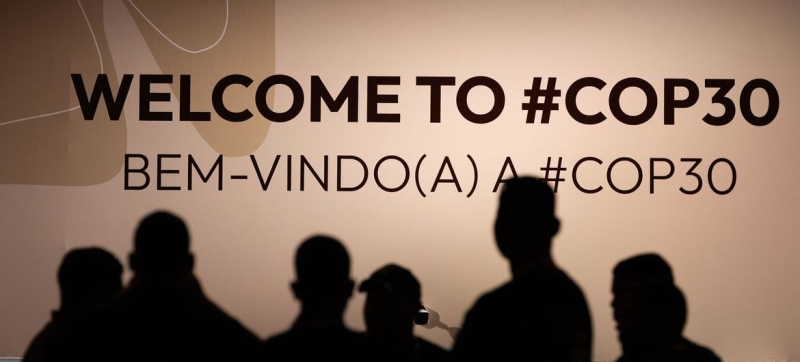- Indian MP Warns Bangladesh Faces Rising Lawlessness |
- Law and Order Must Be Ensured Ahead of Polls: Prof Yunus |
- Tough times ahead, everyone must remain united: Tarique Rahman |
- Sirajganj’s luxuriant mustard fields bloom as an oasis of gold |
- Man killed after boat hits sand-laden bulkhead on Padma River |
Leaders Push to Accelerate Climate Action at COP30 Summit

COP30 gets underway in Belém in the Brazilian Amazon.
COP30 opened in Belém on Monday with a clear message: the era of half-measures is over. Climate change is already devastating communities and increasing economic strain, but viable solutions are at hand. Clean energy deployment is expanding, resilience strategies are saving lives, and international cooperation can still prevent the worst outcomes.
“This is the moment to match opportunity with urgency,” said Brazil’s President Luiz Inácio Lula da Silva, calling for a firm rejection of climate denial and faster efforts to keep the 1.5°C goal within reach.
As negotiations began, UN Climate Chief Simon Stiell urged delegates to avoid political disputes and focus on implementation. “Your job here is not to fight one another – your job here is to fight this climate crisis, together,” he said. “This is the growth story of the 21st century.”
Cautious Optimism as Climate Pledges Increase
The first day of the summit was marked by cautious optimism, as new national climate plans (NDCs) brought the total to 113 countries now committed to curbing global warming. Together, they account for nearly 70 per cent of global emissions. A preliminary UNFCCC analysis suggests these commitments could reduce emissions by 12 per cent by 2035. Progress is evident, but still insufficient to guarantee the 1.5°C threshold.
Global Emissions Curve Beginning to Bend
Stiell noted that commitments made at recent COPs are starting to slow the rise of global emissions. He said Belém, located at the mouth of the Amazon, should serve as a reminder of the power of collective effort. “The Amazon is not a single river, but a vast system sustained by many tributaries. In the same way, implementation must be driven by many streams of cooperation.”
No Country Can Act Alone
He warned that no country can address climate impacts on its own, and that climate-driven disasters can cause severe economic losses. He outlined five priorities for COP30:
• Phasing out fossil fuels in a just and orderly manner
• Tripling renewable energy capacity and doubling energy efficiency
• Mobilising $1.3 trillion annually for developing countries
• Approving global adaptation indicators
• Advancing the Work Programme on Just Transition
• Scaling up the Technology Implementation Programme
Lula: ‘We Cannot Breach the 1.5°C Limit’
President Lula called climate change “a tragedy of the present,” pointing to recent storms in Latin America. He urged unity against climate disinformation and pushed for a global roadmap to move beyond fossil fuels, reverse deforestation and mobilise the necessary financing.
He also announced a new fund to support energy transitions in developing nations, financed through oil revenues. The Leaders’ Summit in Belém has already mobilised $5.5 billion for the Tropical Forests Forever Facility, aimed at rewarding nations for protecting rainforests.
‘COP of Implementation, Adaptation and Science’
COP30 President André Corrêa do Lago, in his opening address, called for a summit focused on practical implementation and greater trust in science. He emphasised the central role of Indigenous Peoples as guardians of the Amazon, now at the heart of global climate action.

